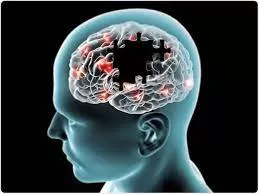As the world continues to grapple with the lingering effects of COVID-19, researchers are striving to unravel the mysteries surrounding the virus’s impact on neurological symptoms such as headaches, memory problems, and fatigue. Contrary to previous assumptions suggesting direct brain infection by SARS-CoV-2, a groundbreaking study by researchers at Charite-Universitatsmedizin Berlin in Germany proposes a novel theory implicating inflammation in the body as the underlying cause of these symptoms.
Dr. Helena Radbruch, head of the Chronic Neuroinflammation working group at Charite, explains, “Early on, we hypothesized that the coronavirus might directly infect the brain. However, our findings indicate otherwise. There is no clear evidence of the virus persisting in the brain or infecting brain cells.” Instead, the study suggests that neurological symptoms may stem from the body’s robust immune response to the virus rather than direct brain invasion.
The research, which involved analyzing brain tissue from individuals who died of severe COVID-19 infection, revealed no evidence of SARS-CoV-2 infecting neurons. Instead, the presence of coronavirus genetic material was detected in immune cells, indicating that the virus likely infiltrated the brain indirectly via these cells.
Prof. Christian Conrad, head of the Intelligent Imaging working group at the Berlin Institute of Health at Charite, highlights the key findings: “Although neurons did not become infected with SARS-CoV-2, we observed significant molecular changes in response to inflammation in other parts of the body. These changes, particularly in the brainstem, could explain the neurological symptoms observed in COVID-19 patients, such as fatigue and altered mood.”
The study also found that the neuronal response to inflammation was temporary, with molecular changes most pronounced during the acute infection phase and returning to normal afterward in the majority of cases.
While the research challenges previous notions about COVID-19’s neurological impact, it underscores the complexity of the virus’s interaction with the human body. Further investigations are warranted to elucidate the mechanisms underlying neurological symptoms in COVID-19 patients and develop targeted interventions to alleviate these debilitating effects.
As the scientific community continues to delve deeper into the multifaceted nature of COVID-19, studies like these provide invaluable insights that could shape future approaches to managing and treating the long-term consequences of the disease.












